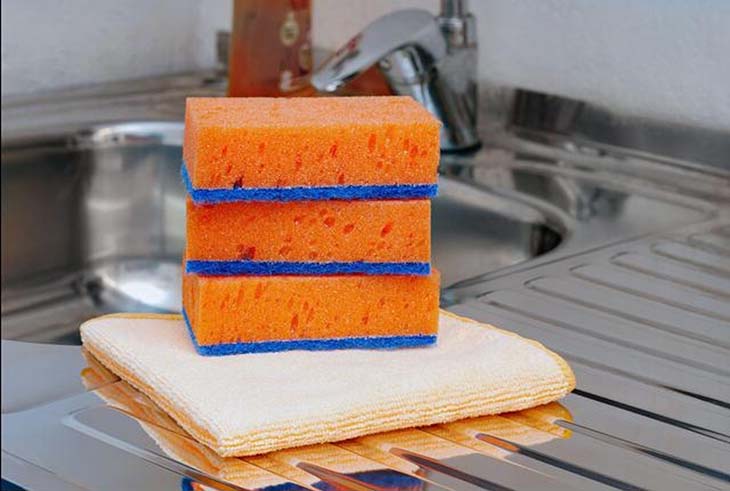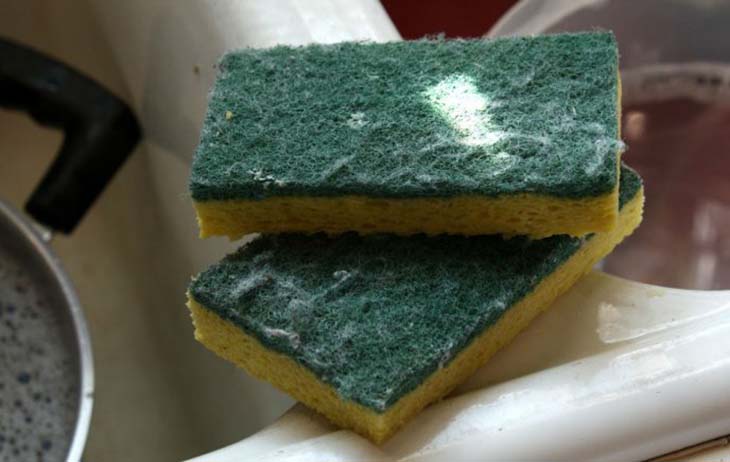
A survey found that dish sponges harbor as many bacteria as a toilet bowl. Only, cleaning them is even more risky. Find out why and how you should protect yourself against this everyday phenomenon.
Summary
Dishwashing sponges can pose a risk to your health because bacteria and germs tend to hide there. Although they remove dirt and food residues that remain on plates and dishes, they pose the risk of absorbing infectious agents.
And for good reason, dirt and humidity create an environment conducive to the proliferation of bacteria.

Dish sponge – Source: spm
Dishwashing sponges, a nest of bacteria
The dish sponge is indeed one of the dirtiest things you can find in the house. This object is composed of many holes that facilitate the absorption of liquids and residues.
If a sponge stays wet, new bacteria can grow every 20 minutes.
Scientists advise against any attempt to clean these household items.
Many believe that washing in boiling water will destroy bacteria in dishwashing sponges, but it has the opposite effect.
A team of researchers from the University of Furtwangen, Germany, tested several cleaning options with the aim of making cleaning sponges bacteria-free. They tried microwaving the sponge, boiling it, sanitizing it, soaking it in white vinegar, putting it in the dishwasher, and tossing it in the washing machine with the laundry. .
Result: some bacteria are neutralized but only the weakest ones. The strongest of these microorganisms survive, and if the weaker ones disappear, that only creates even more space for the strong bacteria to proliferate.
Researchers from the University of Furtwangen have identified no less than 362 different bacteria in the cleaning sponges used. They also found 82 billion bacteria in a single cubic centimeter of sponge.

Dish sponge – Source: spm
Where do sponge bacteria come from?
Bacteria in the sponge mainly come from food, kitchen surfaces, or contact with your skin. Thanks to its warm and humid environment and its space full of food residues, the sponge creates the perfect living conditions for bacteria.
Although the fungus is a real bacteria, scientists have yet to find any dangerous bacteria.
However, one bacteria in particular has been found in dish sponges . This is the so-called Moraxellaceae family, which can cause infections if your immune system is weakened. The latter can give cleaning sponges their foul odor. That's why you should throw in the towel immediately if it smells bad.
Advice from the experts
Scientists advise to throw away dish sponges and use another means of cleaning. If you can't do without the sponge, change it at least once a week. Remember to rinse the sponge and let it dry after each wash so that bacteria do not proliferate.
You can also boil the cleaning sponge and avoid using it in areas with bacteria, such as the kitchen . Instead, use the cleaned sponges in the bathroom, for example.
Comments
Post a Comment